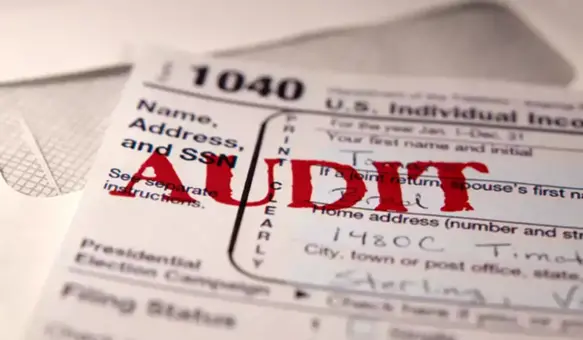Rental Properties & Your U.S. Tax Return

To maintain your ties to the United States, you may decide to convert your U.S. home into a rental property instead of selling it when you move overseas. This way, you can retain your equity while seeing that your home works to pay for itself. If you do decide to rent, however, please note that the income and expenses related to renting should both be reported on your expat tax forms. The specific form required is Schedule E (Supplemental Income and Loss).
American Rental Property and Keeping Records
It is absolutely essential that you keep accurate records throughout the year. Waiting until tax time to gather the necessary information is what gives tax time a bad name! If you choose to rent your house through a management company, your job will be much easier as they will keep the necessary records and provide you with them at the end of each year. You will be sacrificing profits, however, as rental management companies charge a significant percentage of your gross rental income. For financial reasons, many expats choose to manage their homes themselves, albeit from abroad. If this is your chosen method, you should maintain electronic records of every single transaction, both incoming and outgoing, throughout the year. Making a habit of good recordkeeping will drastically reduce your stress and liability come tax time.
You may be wondering what expenses you will need to report. As far as deductions are concerned, it is extremely important to note the depreciation of your property. From the first date of rent, you can adjust the value to allow for depreciation for 27.5 years. The base amount that you can depreciate is the lesser of the fair market value of the home and the adjusted basis (typically house purchase price adjusted for improvements). Other deductions include HOA dues, cleaning fees, repairs, home insurance, legal and accounting expenses, mortgage interest, and travel expenses that are maintenance-related.
Taxable income includes the obvious rent payments. Also, taxable are additional monies paid to you for repairs and services. Security deposits are not taxable because you expect to pay them back at some point. If, however, the deposit is not returned due to actions by the tenant, you are required to report the deposit as taxable income. You may have a handy tenant who opts to do home repair in exchange for rent. When this is the case, you must report the value of the property as rent earned. You will then be allowed, however, to claim that same amount as an expense.
Completing Schedule E
After you have gathered all of the necessary information, you will apply those pieces to Schedule E on your expat tax form. As an example, we’ll say that John and Allys bought their first home in 1999 and paid $180,000. They lived there for four years before deciding to move to Paris, France. At that time, at the close of 2003, their house is worth $200,000. They love the house and decide to keep it and rent it out. They also decide to manage the property from Paris.
They are paid $500 of their requested $800 deposit and the renter fixes the back fence in exchange for the rest. The tenant pays $650 a month in rent and pays it on time every time. John and Allys pay the HOA fee of $200 a month and the tenant pays his own utilities. The tenant is handy and handles all of his own repairs except for a $100 glass replacement. Their 1098 reports their mortgage interest at $7,000 and their real estate taxes at $2,000. They paid $550 for property insurance.
With the above information, John and Allys can complete Schedule E for their 2004 expat taxes. Most important to note will be the $300 of the security deposit that John and Allys traded for fence repairs. Even though no money changed hands, it should be handled as if the tenant was paid $300 for the fence repair and then turned around and paid it to the landlords. They can claim the $300 as an expense. The deposit itself is not taxable because it will most likely be paid back when the tenant leaves.
Depreciation is probably the most difficult aspect of Schedule E. Residential rental properties all depreciate over twenty-seven and a half years. You can read all about rental depreciation on the IRS website.
Losses and Deductions Related to American Rental Property
Tax preparers disagree over the deductible amounts of rental properties because some of the qualifications are vague. The law allows for up to a $25,000 deduction for those “actively” participating in rental real estate. “Actively” applies to those who own at least 10% of the property and are involved in management decisions. If you are not considered an active participant, your losses may very well exceed your generated income and may do so under the law.
If you choose to hire a management company, it will be wise to speak with them and let them know that you wish to be involved in management decisions. In this way, you will remain “actively” involved in real estate and will be afforded the significant deduction.
When you sell the property
Before you sell a rental property, you should be aware of the tax consequences of this important decision. Regardless of whether you sell the rental property at gain or loss, you will have to "recapture" all depreciation for the time that property was rented. This is a generally known fact. What you may not know is that the depreciation amount will be reported as ordinary income (taxed at your regular tax rate). Furthermore, even if no depreciation deduction was taken, the net profit or loss on the disposition of the property must be computed as if depreciation was actually taken.
As you probably knew before searching out this information, renting a house in the states while living overseas can be complicated and time-consuming. When it comes to your Schedule E, however, we are here and ready to help. Contact the international tax experts at Taxes for Expats with all of your renting questions and concerns.



